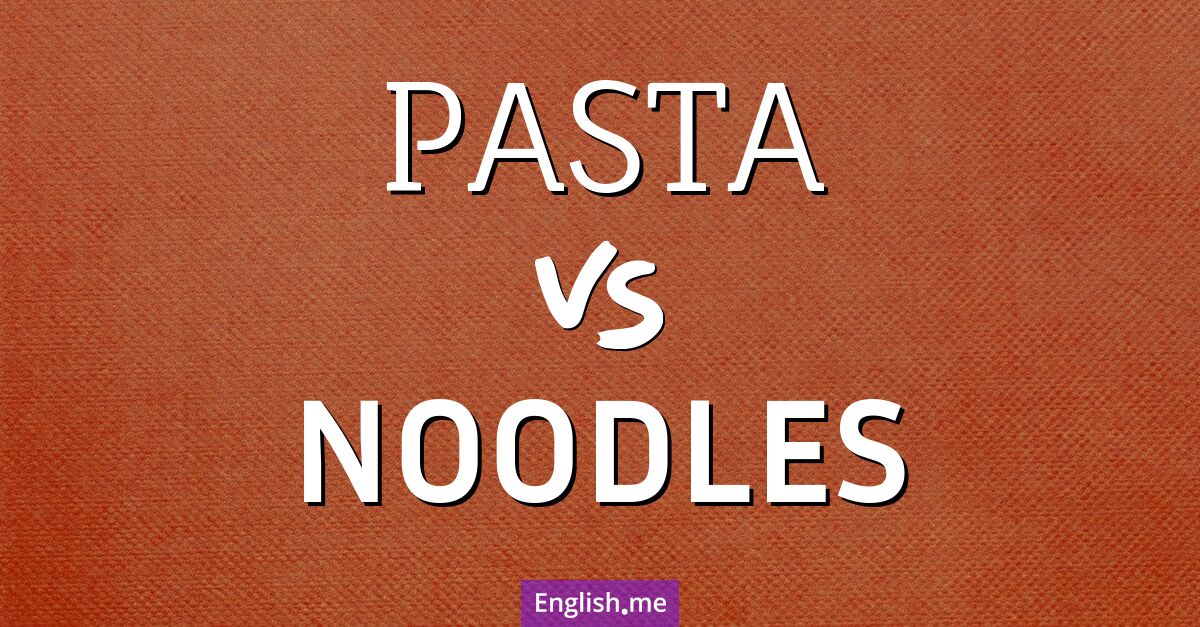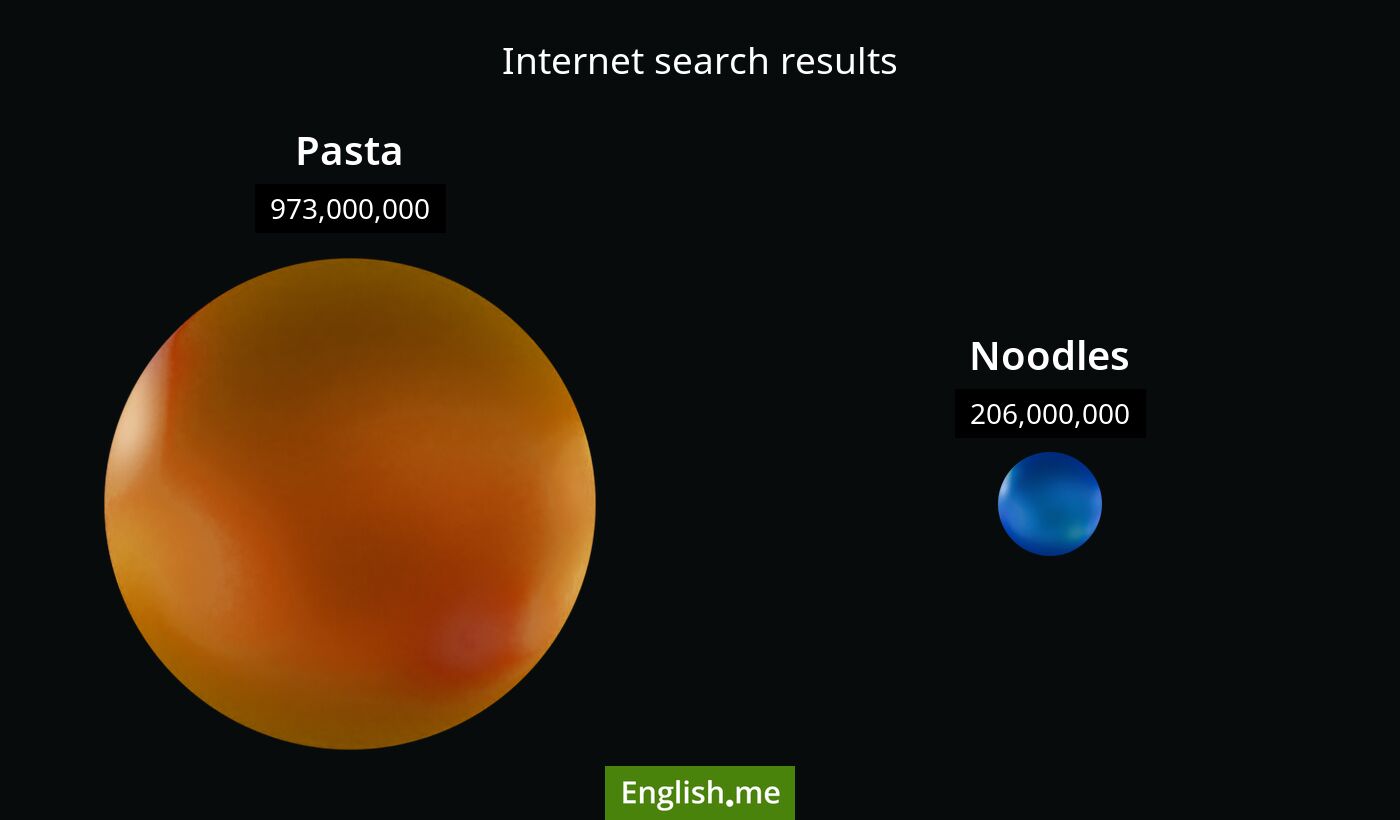"Pasta" vs. "noodles": a delicious comparison

 What is similar?
What is similar?
Both pasta and noodles are staple foods made from unleavened dough of flour and water, sometimes with added eggs. They are cooked by boiling and are versatile ingredients used in a variety of dishes worldwide. Both can be served hot or cold and paired with sauces, vegetables, meats, or broths.
 What is different?
What is different?
Pasta is traditionally associated with Italian cuisine and is typically made from durum wheat semolina, giving it a firm texture. It comes in a variety of shapes like spaghetti, penne, and macaroni. Noodles are linked to Asian cuisines and can be made from various flours such as rice, wheat, or buckwheat, resulting in different textures and flavors. Noodles also come in various forms like rice noodles, soba, and udon, and are often used in soups, stir-fries, or chilled dishes.
 Which one is more common?
Which one is more common?

 Examples of usage
Examples of usage
Pasta- She cooked spaghetti pasta with marinara sauce for dinner.
- He enjoys eating pasta salad during the summer.
- They learned how to make fresh pasta from scratch.
- The Italian restaurant offers a wide selection of pasta dishes.
- Pasta is often served al dente for the best texture.
- He ordered a bowl of spicy ramen noodles.
- She stir-fried the noodles with vegetables and tofu.
- Noodles are a staple ingredient in many Asian recipes.
- They enjoyed cold soba noodles on a hot day.
- Instant noodles are a quick and easy snack.

 English
English español
español française
française italiano
italiano deutsche
deutsche 日本語
日本語 polski
polski česky
česky svenska
svenska Türkçe
Türkçe Nederlands
Nederlands